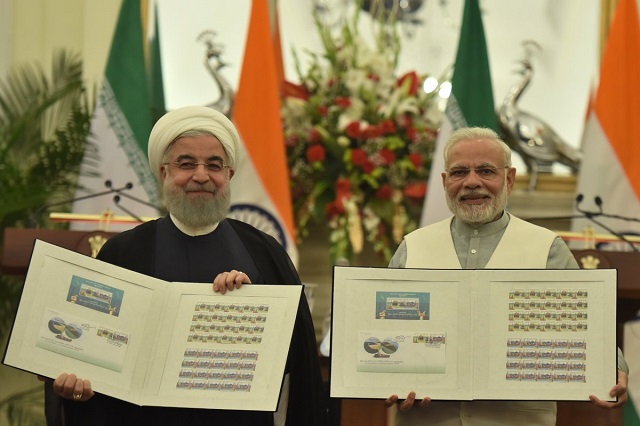
While US President Donald Trump has been busy bending over backwards to placate the authoritarian rulers of Russia and North Korea, his visceral animosity against the Iranian regime remains undiminished. His threat to impose sanctions on third countries that do business with Iran, whether they’re in Europe or Asia, jeopardises America’s relations with important countries around the world.
As a part of this policy, US Ambassador to the UN Nikki Haley recently
warned New Delhi that unless it drastically reduced its energy imports from Iran by 4 November it would be subject to American sanctions. Earlier, India had made it clear that it’s willing to abide by sanctions imposed by the UN, but won’t implement any imposed by a single country. The US then abruptly cancelled the high-level 2+2 meeting of the two countries’ defence and foreign ministers that was scheduled to be held in Washington in early July.
India can’t afford to risk antagonising the United States beyond a certain point. The US is the leading destination for Indian exports (15.6% of Indian exports in 2017 went to the US). And New Delhi’s security relationship with Washington has grown significantly during the past decade, mainly as
a function of China’s rise, which both the US and India find threatening to different degrees.
In addition to civil nuclear cooperation with India, the
US has offered to sell it unarmed MQ-9B Guardian naval surveillance drones, aircraft carrier technologies, and F/A-18 and F-16 fighter aircraft to bolster its defence capabilities and level the playing field with China. So, increasing its security dependence on the US has forced India into a quandary in its relations with Iran.
India’s relations with Iran have been nurtured with care by New Delhi for several decades. Even during the Shah’s reign when Iran and Pakistan—both then members of the
Central Treaty Organization—were close allies, India made every attempt not to tread on Iranian toes. When the Shah expressed apprehension after India’s liberation of Bangladesh in 1971 that it might try to dismember the rump Pakistan, Prime Minister Indira Gandhi sent a high-level personal emissary to Tehran to set his fears at rest. After the Iranian revolution, New Delhi quickly overcame its reservations about the Islamic orientation of the new regime and developed mutually beneficial relations with Tehran.
India’s need for oil and gas imports from Iran, its third largest supplier of oil, provides only a partial explanation for New Delhi’s desire to preserve good relations. Iran’s geostrategic location as a major land power contiguous to Pakistan and Afghanistan makes the country very important for India. It’s in India’s interests to cultivate Iran so that, in times of crisis with Pakistan, Islamabad can’t draw on support from Tehran that could provide it with defence in depth. And, as the gateway to Afghanistan and Central Asia, Iran is commercially and strategically important to India.
India is cut off from direct access to these countries because of its uneasy relationship with Pakistan. New Delhi is interested in encouraging a friendly government in Afghanistan to prevent Pakistan from using it as a rear base in times of conflict with India. It doesn’t want a repetition of the 1990s when the Pakistan-supported Taliban were in power in Kabul. Both India and Iran, for different reasons, provided aid to the Northern Alliance in its fight against the Taliban and continue to have a major interest in not allowing the Taliban to return to power in Afghanistan.
Chahbahar port in southeastern Iran provides India with an ideal point of entry and will eventually be
an excellent transit point for Indian goods bound for other parts of Iran and for Afghanistan and the countries of Central Asia. New Delhi has committed major resources to building the port and will operate it once a final deal is concluded with Iran.
The American threat to sanction India if it continues to develop relations with Iran therefore comes at a most inopportune time for New Delhi. It has drastically narrowed the diplomatic space for New Delhi. Whether India caves in or decides to defy US pressure is anybody’s guess. No matter what the decision, it will be a very painful one for New Delhi.
However, forcing India into making such a choice could also boomerang on the United States. If India decides to defy the US on Iran, it could detract immeasurably from America’s credibility as the lone superpower—and set an example for other countries to follow.
 Print This Post
Print This Post